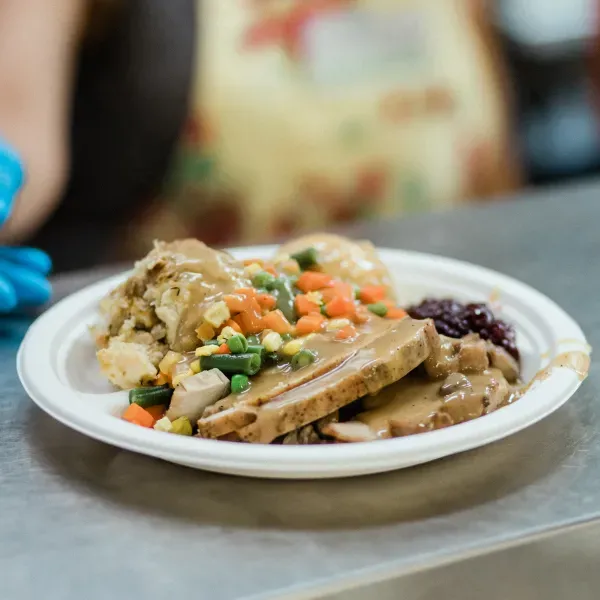Luis radiates joy. He speaks with enthusiasm — about his work as a chef, about biking along the seawall — and when he says he’s in a place of happiness, it’s impossible to doubt. Separated from his family in his early twenties, Luis’s story includes moments of real darkness, but he is choosing every day to focus on the light. Here’s how Luis journeyed through displacement and found the road back to belonging.
For most people, airports are kind of exciting. You might be on your way to a vacation or meeting up with friends for the first time in a long time. Airports are the gateway to everywhere.
But for me, airports haven’t always been places of hope. There have been times in my life where I’ve gotten on a plane without knowing when I’d see my family again. And times where the airport was the only warm place I could go.
Airports are a little bit like our lives: we’re often rushing, getting lost, waiting. I’m grateful that God has written restoration and provision into my life. I’m no longer lost.
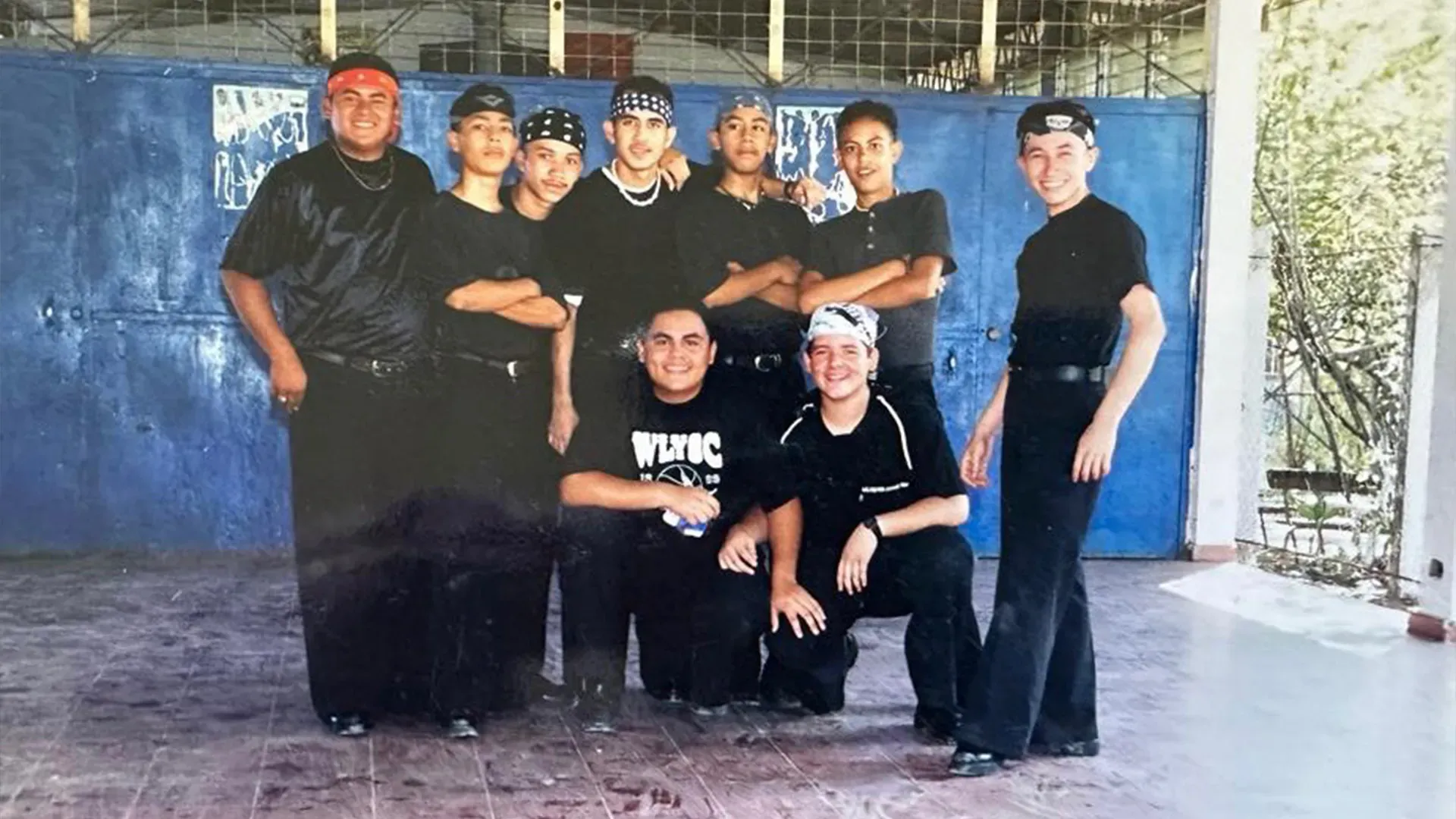
Navigating early hurdles
I was born in Montréal, and moved to Los Angeles when I was two. My mom was a newcomer from El Salvador, and my dad’s side of the family is from the Dominican Republic. My mom is incredible: she dove into learning a new language and a new culture, she worked three jobs and went to school at night. I’m so proud of her.
When I was three, my dad left us. That affected me a lot. He called me when I was seven to tell me he’d gotten remarried — and that was the last time I ever spoke with him.
Missing my dad was a key part of me becoming rebellious and falling in with the wrong crowd. By 14, I was getting in trouble with the police. My friends introduced me to crystal meth, cocaine, and crack, and within what felt like minutes, I lost everything. I was in and out of jail for theft, trying to find ways to pay for my addiction. I lost my job at an auto body shop, and I lost my mom’s trust. My drug habit destroyed a lot.
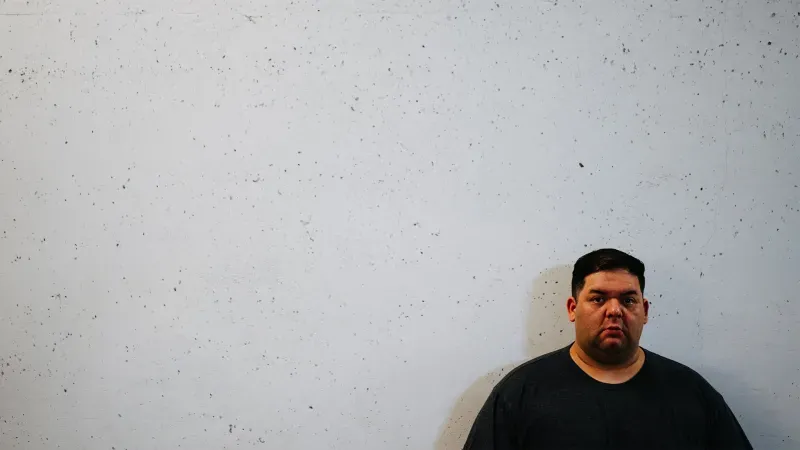
A voluntary departure
When I was 20, I was arrested again. Because I had no US papers, my file was flagged and I was transferred to Immigration Customs Enforcement — and that’s when things became really scary. What got to me the most was how many incarcerated people there were. I was imprisoned for petty theft alongside people who had committed murder. I felt so miserable, and I started to think about all the things I still wanted to accomplish in my life.
When my case came up in court, I was told they were going to deport me. They asked if I wanted to fight the case, but I couldn’t: I’d begun to wonder if maybe I needed to start over, and that this was God sending me a sign to get out of the city. So I signed the paper for voluntary departure. They transferred me from the jail to the airport in handcuffs. Just walking through the airport, I felt so much shame. It was the lowest point in my life. Then I was on a plane, looking out the window and saying good-bye to the city I grew up in.
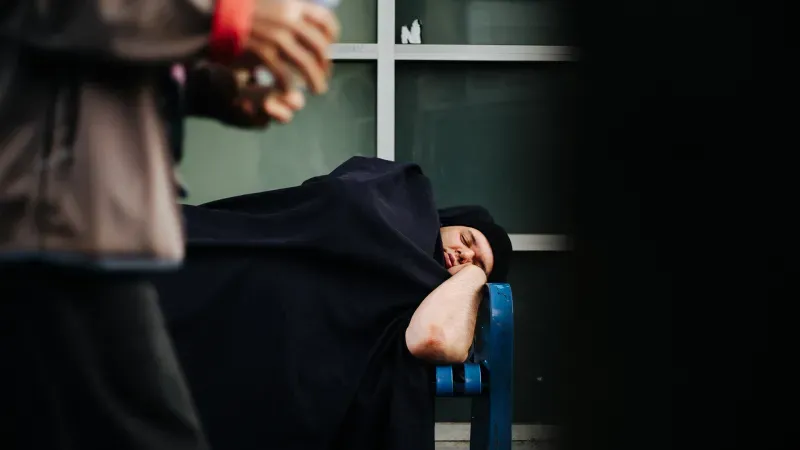
Putting a new life together
I arrived in Vancouver not knowing anyone. I made my way to a men’s hostel downtown run by the Catholic Archdiocese of Vancouver. They helped me put together my ID and travel documents so I could apply for jobs. I remember the first job I landed was at a pizza place; eventually I joined the kitchen at a Caribbean restaurant. Having steady work meant I could rent a bachelor suite. I started to find my footing.
For about eight years, everything was awesome. But I was still hanging out with the wrong crowd. One night, while drinking, I came across crack cocaine. Very quickly, I became a mess: because of my addiction, I couldn’t pay rent, and I lost my jobs. I ended up sleeping on the streets.
For two months, I lived outside, and it was miserable — I was cold, wet, and hungry. I went through detox, but couldn’t manage my cravings. So I wound up where I started. I went back to the airport.
Finding refuge
I remember, it was Christmas. I went to the airport just to keep warm — I took everything I owned with me in a suitcase so I looked like a passenger. I slept at the airport until a security guard called me over. He said, “I’ve been looking at the surveillance camera, and you’ve been sleeping here for the past three days. You can’t stay here.” He was actually a nice guy: he gave me a ticket for the SkyTrain. Luckily, I still had a cell phone, so while I rode the train, I searched for shelters. And there on my screen was Union Gospel Mission.
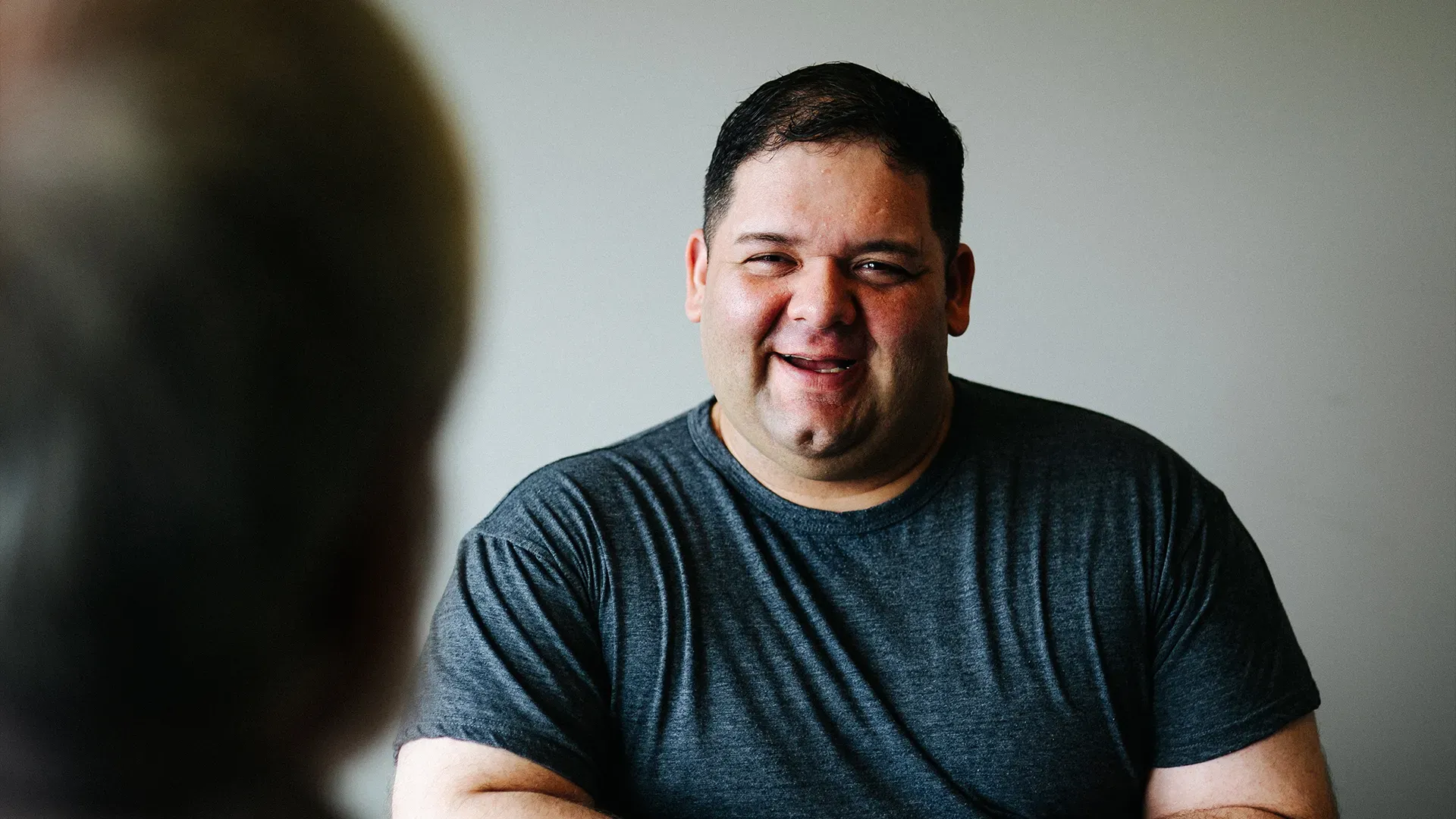
I arrived at UGM early in the morning. The Shelter was closing for the day, but they invited me in to have a shower and breakfast. I was sitting in The Cornerstone watching the TV and drinking a coffee, and I saw information about the Men’s Recovery Program. I filled out an application that day, and by the end of the week, I was enrolled.

Being in recovery was a little bit scary: I felt a lot of shame, so I didn’t want to share anything. I didn't know what to expect, and I wondered if people were going to like me. But everyone was very welcoming. And I was just happy to be alive. I was ready to open up and get myself in a better spot.
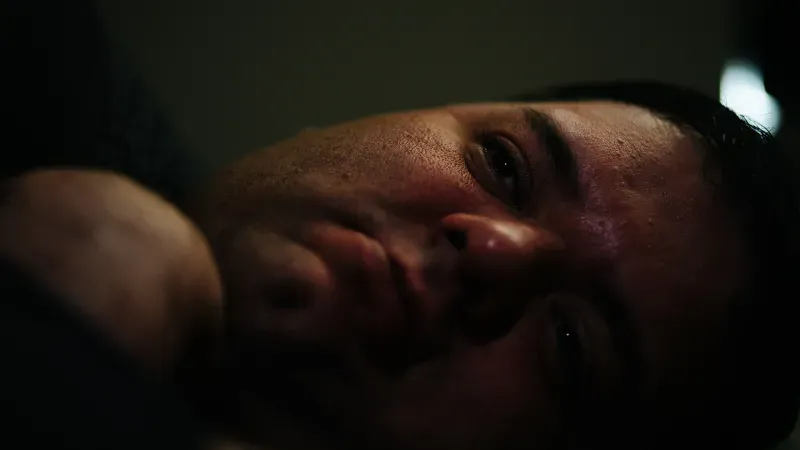
Hearing from God
It was when I was in the second stage of recovery that I had a really clear experience with God. I was staying in aftercare housing at UGM, and I was woken up in the middle of the night by a loud voice. It was powerful, and very clear: it said, “Grace.” I still get goosebumps thinking about it. That was the day my life completely changed.
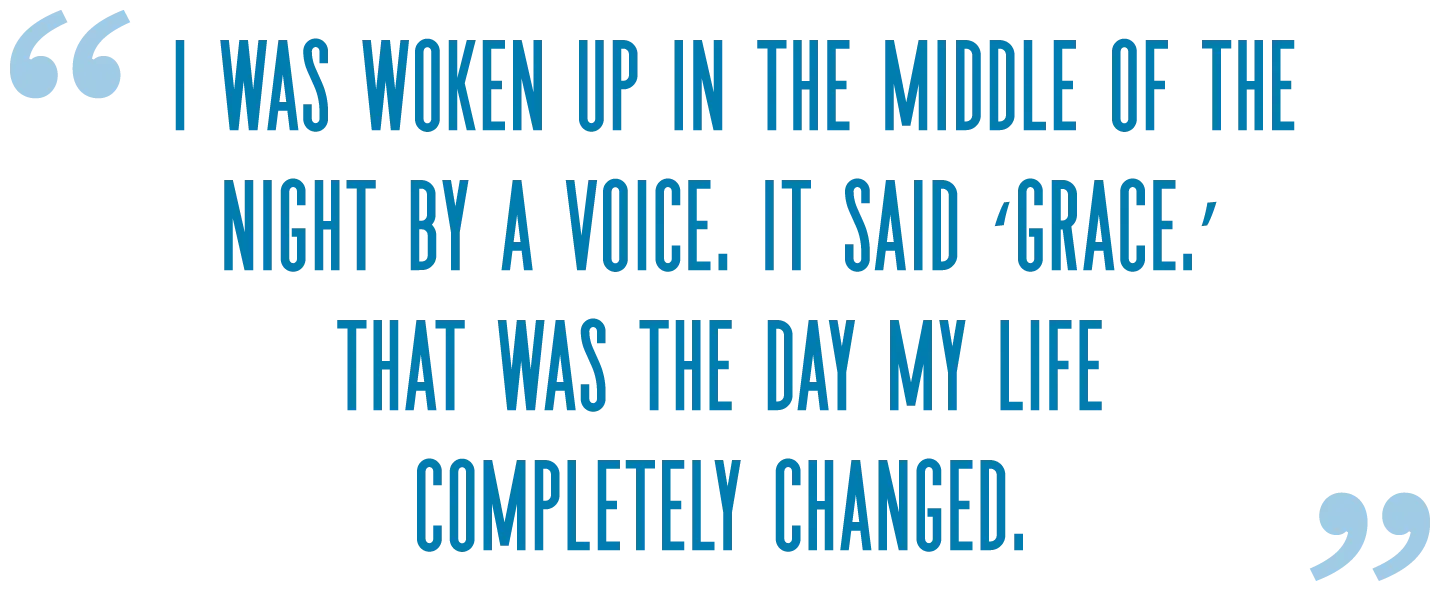
Once I felt that gift of grace, I became more active and felt more energized. I saw a different perspective — one that was hopeful. When I finished my formal recovery programming, staff at UGM helped me apply for housing, which felt like a pipe dream because of the housing crisis in BC. Six months later, I got a place. That was the happiest day of my life. I was so grateful to find a place downtown, because UGM is my home and I always want to be able to come back to visit. I love to reconnect with the people I know, and also meet new faces.
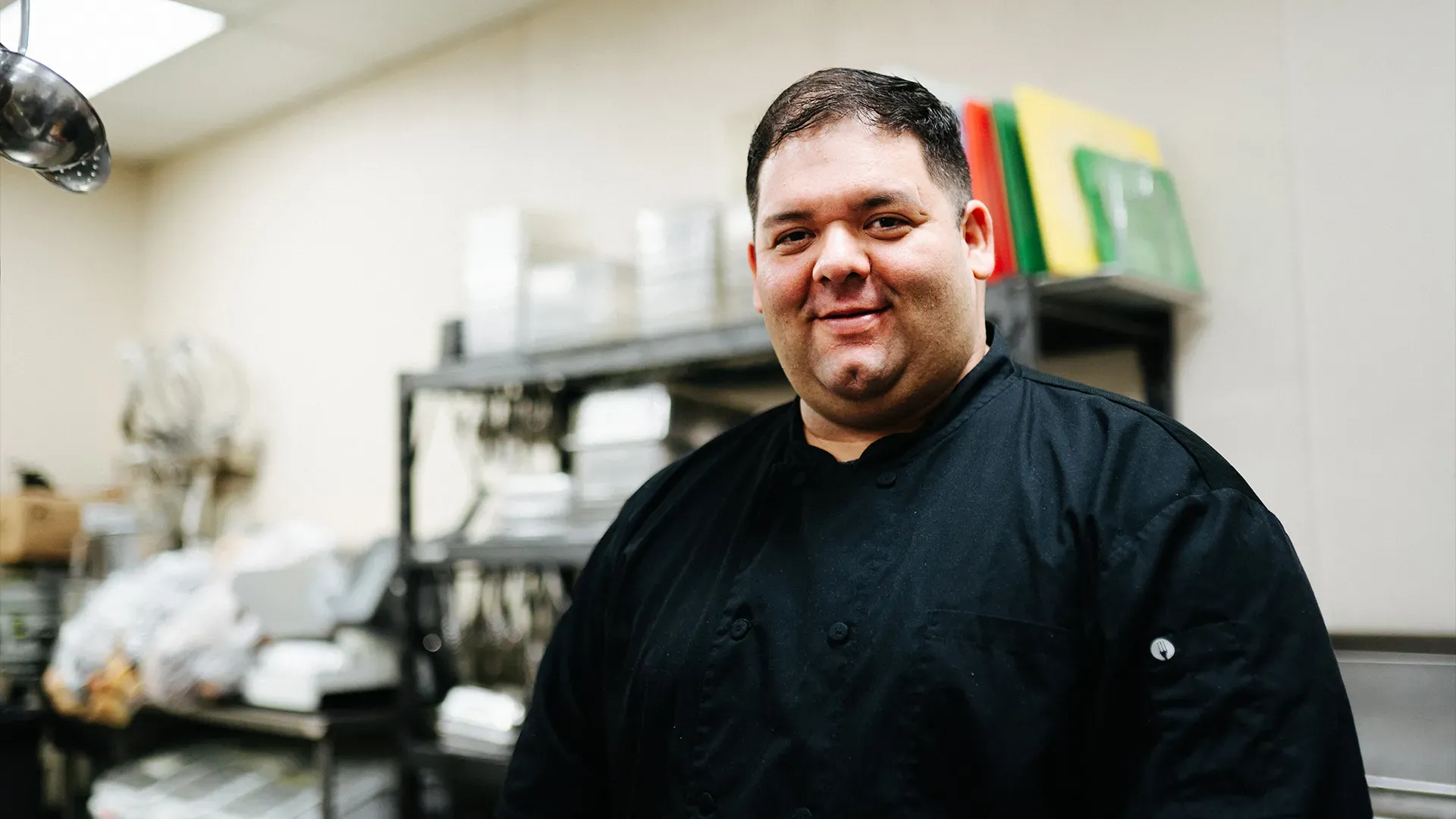
I returned to my work as a chef, and one of my favourite things to do on my days off is to bike along the seawall. I like to stop where there are some benches, face the ocean, and watch the way the water hits the wall. After the noise of the city, I love to close my eyes and listen to the water splashing. It’s just beautiful. That’s a great meditation for me.
Living with the door of my heart open
The piece of my life I’m most excited about is that I’m in touch with my family after so many years of separation. It’s been a long road: my mom got remarried when I was 16, and when my stepfather first came into my life, I struggled to accept him. I didn’t allow that friendship to grow. They had a son, my half-brother, and I felt like I let him down by not being a big brother or role model at the time.
The most amazing thing is how close my relationships are now. I’m able to visit my family, and they’ve visited me here. My stepfather and I have forgiven each other, and we support each other — we cry together, we laugh together. I love my stepfather so much because he makes my mom so happy.
I was able to be there for my brother through the pandemic while he was struggling with online school, because I was working on my GED and struggling with online school myself! After all those years when I was on the dark side, I feel like I’m on the bright side now. I’m able to be a supportive role model. We are at peace.
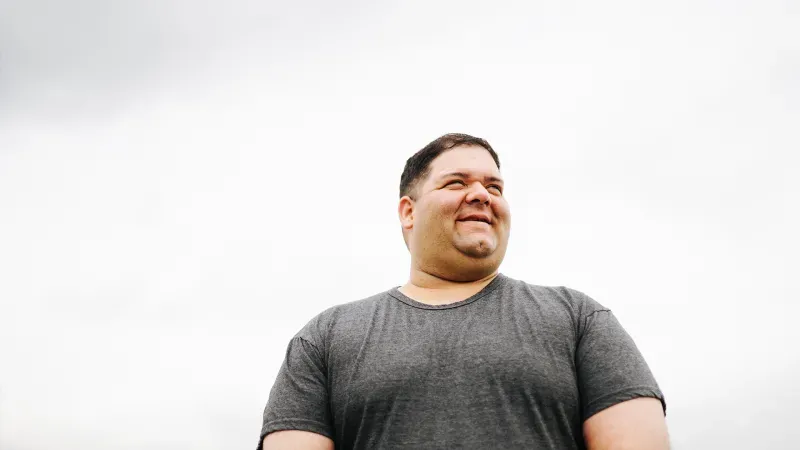

I do want to follow my dreams. Someday, I’d love to be an aircraft mechanic. I want to continue learning — I’m still studying for my GED. But I’m already living with the door of my heart open. I am a full explosion of happiness.
“They broke bread in their homes and ate together with glad and sincere hearts.” — Acts 2:46 (NIV)
I have a quote hanging in my office that talks about the central theme of the Bible being one of home, homelessness, and homecoming. In a few short sentences, it tells the story of humanity: God made a home for us in creation, but we decided to go our own way. On our own, we drifted. Instead of safety and care, we experienced broken relationships and disappointment.
The good news is that God has never stopped inviting us back. Where we experience isolation, Jesus came to offer belonging. Where we face relational fragmentation, addiction, and loss, God extends reunion and eternal love.
I like the word reunion. That’s what we strive for here at Union Gospel Mission: the “re-union” of people and communities. This theme of home and homecoming rings especially true during the holiday season, when we remember Jesus’s birth into a world that had no room for him. And still he came to bring us into relationship with him.
This Christmas, more people than ever are experiencing isolation and disconnection. But through invitation, through your support, and through the prevailing grace of God, we are working to connect people with the hope and future God has for them. Following in Jesus’s footsteps, we are extending care — in the hopes that one day, everyone will be welcomed home.
Thank you for seeing the work of hospitality as the doorway to hope.
In faith,

Help Make Room for Miracles
For $48.45, you can give the life-changing gift of a hot meal and a night of shelter this Christmas.


